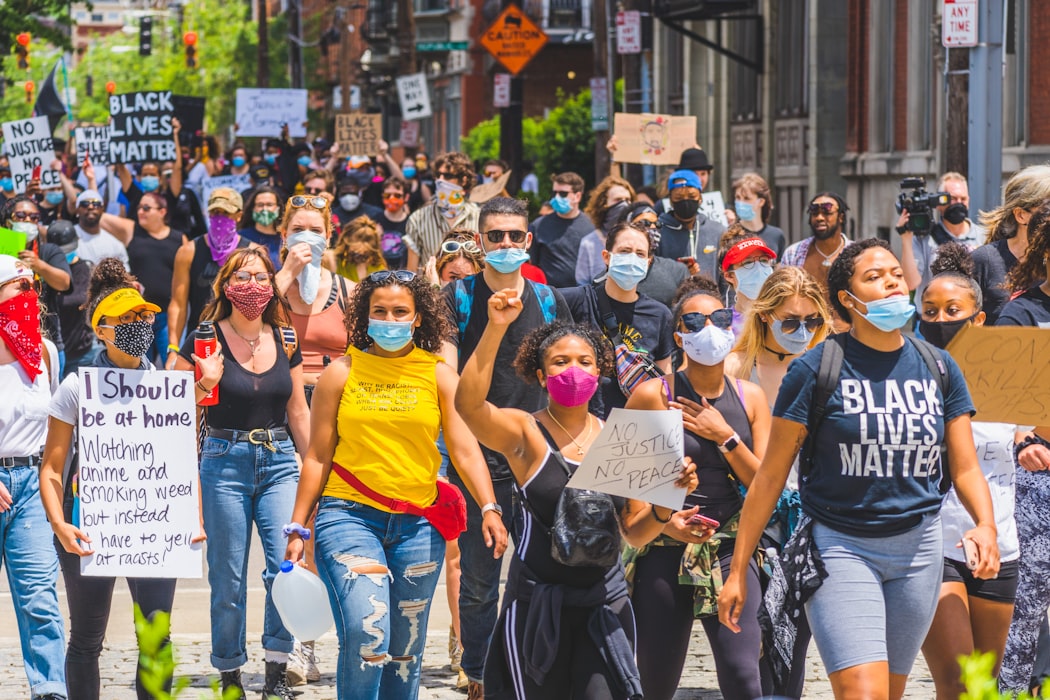Please, read this article by Yaa Gyasi: White people, Black authors are not your medicine. It's a potent discussion of her experience as a Black novelist who has long been held in the "anti-racist reading list" space. It's also, obviously, speaking to white people, and as I fit that category, I want to amplify it (which, on its face is kind of hilarious that I'll use my lil' blog to "amplify" the megaphone of an article in THE GUARDIAN, but we work with what we've got).
Gyasi, on her experience touring her book and encountering racism before 2020:
"I was exhausted, not just by the travel but by something that is more difficult to articulate – the dissonance of the black spotlight, of being revered in one way and reviled in another, a revulsion that makes clear the hollowness of the reverence."
On seeing her book on anti-racism reading lists in 2020:
"To see my book on any list with [Toni Morrison's The Bluest Eye] should have, in a better world, filled me with uncomplicated pride, but instead I felt deflated. While I do devoutly believe in the power of literature to challenge, to deepen, to change, I also know that buying books by black authors is but a theoretical, grievously belated and utterly impoverished response to centuries of physical and emotional harm. The Bluest Eye was published 51 years ago. As Lauren Michelle Jackson wrote in her excellent Vulture essay 'What is an anti-racist reading list for', someone at some point has to get down to the business of reading." (Emphasis original.)
I have long believed that an vital part of everyone's work as a human is to expose themselves to the creative work of people from different, historically silenced groups. It's important because the art and entertainment we bathe in has endless, subtle impacts on how we see the world, who we identify with, what we think is "normal", and what perspectives we are able to empathize with. If some voices have been given less of a chance, we would do well to seek them out.
It's also a pretty joyous thing to do: you take something you already like doing (reading, watching TV, listening to podcasts or music), and find some new sources. It's really just finding more things to love.
But. BUT! There is a but. It is: but this is not all there is to do. Not by a long shot. And, as Gyasi says, it is a somewhat impoverished response to centuries of oppression. It's not medicine. It's not medicine in the "hold your nose and swallow it down" way (what author wants you to approach their book that way?), nor is it medicine in the "this will fix you" way.
It may be heart-opening. It may be exciting or challenging or something that rocks the foundations of who you thought you were (as art can be gloriously wont to do). But doesn't do the work of breaking down oppressive systems, internally and externally. And it's reductive as heck to approach Black authors that way.
"A summer of reading cannot fix this. Some may want to call the events of June 2020 a 'racial reckoning', but in a country in which there was a civil war and a civil rights movement 100 years apart, at some point it would be useful to ask how long a reckoning need take. When, if ever, will we have reckoned?"
PS: If you are white and feel, in any way, bothered by the fact that Gyasi (and many other Black commentators) have expressed skepticism at how our anti-racist reading lists are going, at what concrete steps we are taking to make change after reading those books, at our genuineness when we say the words "Black Lives Matter," take a pause. Have we, as a group, earned any benefit of the doubt?
Sign up for my email newsletter for a bi-weekly digest and bonus content!


No comments:
Post a Comment